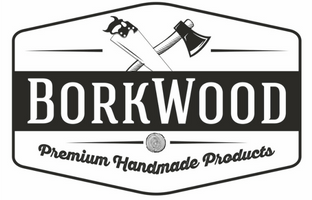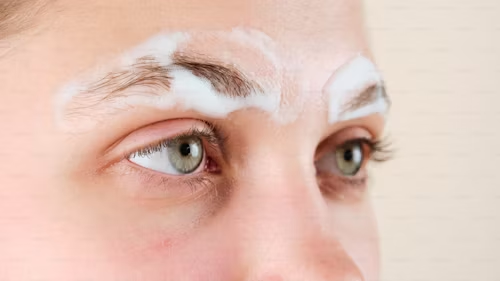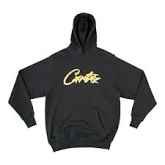Understanding Types of Seams (Nahttypen)
Seams are the backbone of every fabric construction. From clothing seams to home textiles sewing, understanding seam construction and their variations is essential for anyone entering the world of sewing. Whether you’re diving into DIY sewing projects or advanced fashion design sewing, knowing your seam classifications can take your craftsmanship to the next level.
Common Seam Types in Sewing
In sewing, seam types are broadly categorized based on function, appearance, and sewing method. Each serves a distinct role in garment structure and durability.
Topstitch Seam Techniques
Used mainly in jeans and outerwear, topstitch seams provide a decorative and durable stitching line, enhancing both strength and appearance.
Flat-Felled Seam Usage
This classic seam is commonly found in denim. It is created by folding and enclosing the raw edges, making it strong and clean—a go-to for machine sewing seams.
Double-Stitched Seam
A strong choice for items that endure stress. Often paired with safety seam concepts, it gives extra reinforcement, particularly in sportswear and workwear.
French Seam Tutorial
A favorite in custom tailoring techniques, the French seam encloses the raw edges, giving an elegant, invisible seam finish ideal for lightweight or sheer fabrics.
Flat Seam Examples
Flat seams are perfect for tight-fitting garments such as athletic wear. Their flat seam finish ensures comfort and eliminates bulk.
Blind Stitch Seam
Found often in hems, a blind stitch seam provides a neat look with nearly invisible seam lines, commonly used in hand sewing seams or with special machines.
Overlock Seam Application
An essential for seam finishes, overlock seams prevent fraying and are created using specialized overlock machines—perfect for knitwear and stretch fabrics.
Twin-Needle Seam Sewing
Used for both decorative and practical purposes, the twin-needle seam adds parallel lines with elasticity—ideal for elastic seam functions.
Zigzag Stitch Seam
This stitching method offers flexibility, making it a versatile option for fabric seams that need a bit of give.
Safety Seam Meaning
A safety seam combines a standard seam with an overlock, ensuring extra durability and reduced risk of unraveling—vital in clothing seams for kids or activewear.
Seam Construction in Practice
Seam construction involves both machine sewing seams and hand sewing seams, depending on the fabric type and the desired result.
-
Machine sewing seams allow for precision and speed.
-
Hand sewing seams are ideal for delicate areas or final touches.
Understanding sewing patterns plays a vital role in how seams are laid out. Following a seam direction guide and knowing the importance of seam allowance are key to maintaining structure and fit.
Tools and Materials for Seam Perfection
Sewing Machine Seam Types
Modern machines come with a variety of built-in seam functions, from zigzag stitches to overlock seam capabilities.
Using Sewing Needles & Thread
The needle type and choosing sewing thread matter just as much as the stitch itself. Thicker threads are used for decorative seams, while finer ones suit invisible seams.
Types of Presser Feet
A variety of presser feet help achieve perfect seams:
-
Edge-stitch foot for topstitch seam techniques
-
Zipper foot for tight spots
-
Blind hem foot for blind stitch seams
Seam Ripper Usage
Even professionals make mistakes. A seam ripper is a must-have tool to correct errors or modify seams during fitting.
Sewing Accessories
From tailor’s chalk to measuring tape, accessories help maintain accuracy in seam direction and seam reinforcement.
Seam Reinforcement Tips
Areas like underarms or crotches need extra support. Use double-stitched seams or twin-needle seam sewing for additional strength.
Characteristics of Seams
Different seam types have varied visual and structural properties.
-
Elastic seam: Great for stretchy fabrics like jerseys.
-
Decorative seam: Adds flair, used in fashion design sewing.
-
Invisible seam: Found in high-end garments and custom tailoring techniques.
-
Flat seam finish: Perfect for layering and undergarments.
-
Visible seam lines: Often a design feature in textile finishing.
-
Durable stitching: Ensures longevity and wear-resistance.
Application Contexts for Seam Use
How to Sew Clothes
Mastering seams is the foundation of how to sew clothes. From constructing pants to blouses, seams guide the shape and fit.
Home Textiles Sewing
Curtains, tablecloths, and cushion covers benefit from clean and strong seam finishes.
DIY Sewing Projects
From tote bags to aprons, understanding stitching methods and fabric seams makes projects easier and more professional.
Custom Tailoring Techniques
Tailored garments depend heavily on precise seam direction and seam allowance for a perfect fit.
Sewing Course for Beginners
Beginners are introduced to basics like zigzag stitch seam, overlock seam, and blind stitch seam before moving to more complex types.
FAQS
Q1. What are the main types of seams used in sewing?
The main seam types include topstitch seams, flat-felled seams, French seams, double-stitched seams, overlock seams, twin-needle seams, blind stitch seams, zigzag seams, and safety seams. Each serves a different purpose based on fabric type and application.
Q2. How do I choose the right seam for my sewing project?
Choosing the right seam depends on the fabric, durability needed, and visual appeal. For example, French seams work well with sheer fabrics, while overlock seams are best for stretchy materials.
Q3. What’s the difference between machine sewing seams and hand sewing seams?
Machine sewing seams are faster and ideal for durability, while hand sewing seams offer precision for delicate fabrics or finishing work. Each method has a place in custom tailoring and fashion design sewing.
Q4. Why is seam allowance important in garment construction?
Seam allowance ensures fabric pieces are joined securely without affecting the final size of the garment. Learning seam allowance is essential in understanding sewing patterns and proper seam direction.
Q5. What is the best seam finish for home textiles sewing?
Overlock seams and flat seams are ideal for home textiles. They provide a clean edge and prevent fraying, making them great for curtains, cushion covers, and other DIY sewing projects.
Q6. Can beginners learn how to sew clothes with these seam types?
Yes! Beginners can start with basic seams like the zigzag stitch and overlock seam. Enrolling in a sewing course for beginners is a great way to learn about stitching methods, seam finishes, and sewing machine seam types.
Q7. What tools do I need for professional seam construction?
Essential tools include sewing needles, presser feet, a sewing machine, thread, a seam ripper, and accessories like measuring tape and tailor’s chalk. These tools support durable stitching and clean finishes.
Q8. What’s a safety seam, and when should I use it?
A safety seam combines a regular seam and an overlock finish to reinforce stress points in garments. It’s ideal for activewear, children’s clothing, and any design requiring extra seam strength.







